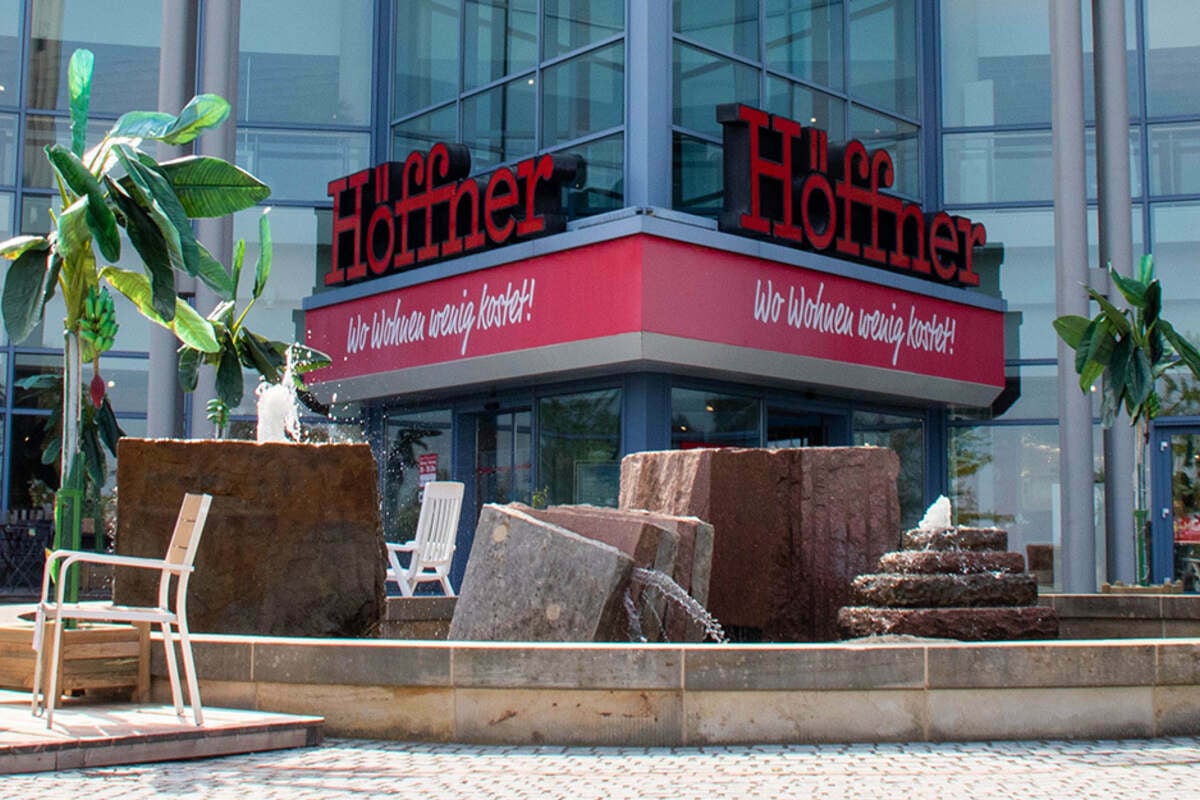Chub. When sewing white and thread red on Ritterstraße opened at 10 a.m. that day, the shop quickly filled up. Women can be shown fabrics, rummage in the various sewing utensils. A woman is interested in a sewing machine. A mother comes with her daughter. “We have a sewing course twice a week. Today it is for beginners. We have already sewn utensils and pillowcases with the children, ”says Daniel Heinrich, who runs the business with his wife Simone. However, the appearance is deceptive. After a while, the flow of customers decreases noticeably. Actually typical. “In the afternoon we’re alone in the shop,” said Heinrich.
Save good months
The couple opened the store in March of last year. Corona came a year later. That didn’t hurt business at first. On the contrary. “In March, April and May it went very well,” said Daniel Heinrich. “If we didn’t have these months, we would no longer exist,” he stated.
In the Corona period, sewing white and thread red had sewn mouthguards in bulk. The online business was also doing well. People used the internet to stock up on the materials to kill a lot of time. Heinrich said up to 120 orders per day were received via Amazon. Then came the break-in in June. This is actually nothing unusual, because business always slacks off over the summer. “But it will start again by the end of August at the latest. Nothing happens this year, ”said Heinrich. His assumption: The short-time work has reduced purchasing power.
The slump in sales cannot be compensated
A loss of around 30,000 euros in sales since June cannot be easily compensated for, not even via online business. “People are now thinking longer whether to buy or not.” At the beginning of September, business people pulled the rip cord: since September 5th, short-time working has been the order of the day again. The opening times are reduced accordingly. During the week it is closed at 3 p.m. On Friday the afternoon is open until 6 p.m. for people who only have time in the evening. It is also open on Saturday mornings.
Lull in the entire industry
Obviously the slack is not a Döbelner phenomenon. “The representatives who come to us say that things are going just as badly elsewhere in this industry,” said the businessman. The Heinrichs had not been able to take advantage of bridging assistance. Because they had only started last year, the business figures did not provide a basis for the financial aid, he said. The Heinrichs don’t have too high hopes for the Christmas business. “We’re not your typical Christmas industry. We’ll see if we still take action. “
IHK determines mood better
According to the figures from the Chamber of Commerce and Industry, this development is obviously not typical for the region. The mood in retail had improved significantly in the past few months, as the IHK’s economic survey in September shows.
However, the hygiene measures that are being decided are major uncertainties for trade and other industries such as the catering industry, said Cindy Krause from the Central Saxony Chamber of Commerce. “In the shops you can implement the hygiene rules well. The mouth and nose covering is not a problem either, you got used to it, ”she said. “I don’t know of any example of a corona hotspot in a retail store.”
Liquidity through emergency aid
In the past few months, retail had been on the up. The business people’s assessment of the situation had risen from -13 to +35 points. The gastronomy has also stabilized and found its niche, said Sindy Krause. In Central Saxony, 43 million euros in emergency aid had also been paid out to more than 5,400 companies with up to ten employees. In addition, 48 million interest-free loans to companies with up to 100 employees. “The liquidity is there. The question is whether that’s enough for the near future. “
Read more local news from Döbeln and Central Saxony here.
–


